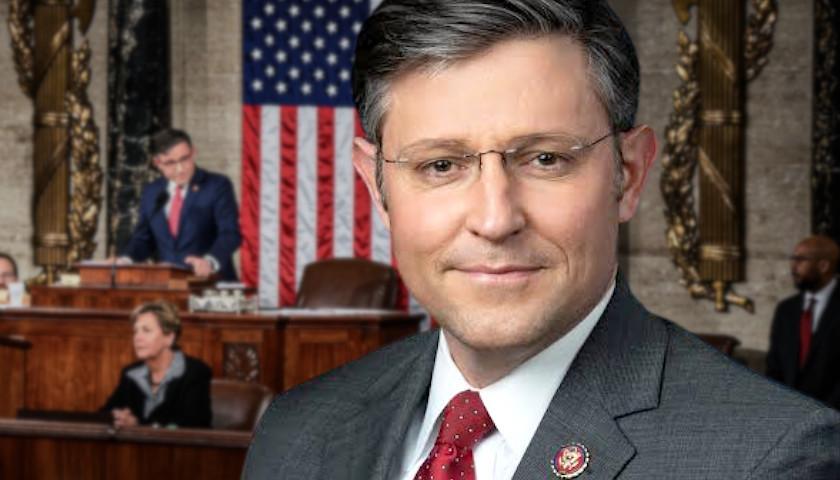NewsChannel 5 and investigative journalist Phil Williams have so far refused to answer questions about the legality of a phone call recording Williams obtained and subsequently broadcast in a Monday report attacking a school choice advocacy group.
The recording captured a phone conversation between Executive Director Tori Venable of Americans for Prosperity-Tennessee and State Representative Todd Warner (R-Chapel Hill), who currently opposes Governor Bill Lee’s pending school choice legislation.
The recording of the phone call may have violated state law.
The Tennessee Star sent an inquiry via email on Thursday to Williams and NewsChannel 5 News Director Sandy Boonstra, asking questions seeking to clarify the recording’s origin and their decision to broadcast it. However, The Star received no response to those questions from either Williams or Boonstra by the publishing deadline of 5 pm CT Friday.
At issue is whether the phone conversation between Venable and Warner, portions of which aired in NewsChannel 5’s Monday broadcast, was recorded legally.
Both Warner and Williams agree that the recorded phone call between Venable and Warner was initiated by Warner from a room, was placed on speakerphone by Warner, was listened to by other individuals in that room, and was recorded by one of the individuals in the room who was listening on speakerphone.
During the Tuesday episode of The Matt Murphy Show, broadcast weekdays on SuperTalk 99.7 WTN, both Venable and Warner denied recording the call, denied consenting to the recording of the call, and further denied knowing who had recorded the call. On that program, Warner also stated that though other individuals were in the room listening to the call on speakerphone, he could not remember the identity of any of the individuals who were in the room at that time. Warner also stated that he initiated the call to Venable on December 8, 2023 from a room at his residence in Marshall County.
In his Monday report, Williams (pictured above, right) told Warner that “someone who was in the room with you” recorded Venable and Warner’s conversation. Williams did not reveal the identity of the person in the room who recorded the call.
While Murphy was interviewing Warner on air on Tuesday, Phil Williams posted a statement on X in which he asserted that the recording was obtained legally.
“Once again, @mattmurphyshow misleads people. Tennessee is a one-party consent state. Anyone in that room-where Warner had the call on speaker phone – could legally record the conversation,” Williams wrote.
Once again, @mattmurphyshow misleads people. Tennessee is a one-party consent state. Anyone in that room – where Warner had the call on speaker phone – could legally record the conversation. (Apologies to@mattmurphy for earlier tag.) https://t.co/Lmo5aKWMCT
— Phil Williams (@NC5PhilWilliams) March 26, 2024
Later that same evening, Michael Patrick Leahy, CEO and Editor-in-Chief of Star News Digital Media, which owns and operates The Tennessee Star, responded directly to Williams’ assertion on X.
“I believe you are incorrect on a point of law. If neither State Rep Todd Warner nor Tori Venable consented to the recording of the call you aired, the person who was listening on speakerphone and recorded the call without identifying themselves as on the call committed a felony. Read the TN statute here: law.justia.com/codes/tennesse,” Leahy wrote.
.@NC5PhilWilliams I believe you are incorrect on a point of law. If neither State Rep Todd Warner nor Tori Venable consented to the recording of the call you aired, the person who was listening on speakerphone and recorded the call without identifying themselves as on the call…
— MichaelPatrick Leahy (@michaelpleahy) March 27, 2024
Williams did not respond to Leahy on X with an explanation as to why he believed, “Anyone in that room-where Warner had the call on speaker phone – could legally record the conversation.”
In Thursday’s email to Williams and Boonstra, The Star asked if he recorded the call, whether he knew who recorded the call, and whether he sought legal counsel before accepting and broadcasting the recording, and whether said legal counsel informed Williams of the recording’s legality.
Williams has not responded to those questions as of the publication of this article.
Additionally, in Thursday’s email, The Star questioned Boonstra (pictured above, left) whether she knew the recording’s origin before NewsChannel 5 aired Williams’s report and the outlet’s policy about airing illegally obtained audio recordings.
Boonstra has not responded to those questions as of the publication of this article.
Tennessee is a “one-party consent” state, meaning it is legal for a conversation between two or more parties to be recorded with the consent of only one party. However, state law defines “party” to mean “only those individuals who participate in a conversation and whose presence as participants is known to all other participants,” according to Tennessee Code Annotated § 39-13-604.
Tennessee Code Annotated § 39-13-604 further states:
(b)(1) A person commits an offense who, without the consent of at least one (1) party to a communication, intentionally records or disseminates a communication transmitted between two (2) cellular radio telephones, a cellular radio telephone and a landline telephone, or a cordless telephone and a cellular radio telephone. (2) A person commits an offense who intentionally disseminates a communication transmitted between two (2) cordless telephones or a cordless telephone and a landline telephone, if such dissemination is not authorized by a court order. (c)(1) A violation of subsection (b) is a Class A misdemeanor. (2) A violation of subsection (b) is a Class E felony, if the defendant knowingly publishes, distributes or otherwise disseminates to another the intercepted or recorded communication.
“I am not an attorney, and it appears to me that there is a real lack of clarity on this matter,” Star News Digital Media CEO Leahy said Friday as the publication deadline for this article passed with no response from either Williams or Boonstra.
“I have spoken with several attorneys familiar with Tennessee statutes on this matter in the past week, and they all agree that this is an area of law with little in the way of judicial precedent or guidance when it comes to legislative intent. If it is true that neither party to the call – Venable or Warner – recorded the call or consented to the recording of the call, and if the person listening on the speakerphone who recorded the call did not identify themselves as participating on the call and was therefore not considered to be a party to a call, it is difficult to understand the legal argument that could be made to defend that individual’s recording of the call as ‘legal,’ as Williams asserted in his March 26 tweet,” Leahy said.
“Perhaps Williams could argue that Warner’s act of placing the call on speakerphone indicated his implied consent to record the call to anyone in the room listening to the speakerphone. More likely, Warner’s act of placing the call on speakerphone indicated his implied consent to anyone in the room to listen to the call, but not implied consent to record it. At least that’s how it appears to me,” Leahy continued.
“Since neither Williams nor NewsChannel 5 News Director Boonstra have responded to The Star’s request for an explanation of Williams’ assertion that the recording was legal, The Star will continue to press for answers,” Leahy concluded.
– – –
Matthew Giffin is a reporter at The Tennessee Star and The Star News Network. Follow Matthew on X/Twitter.
Photo “Phil Williams” and “Sandy Boonstra” by NewsChannel5.






“state law defines “party” to mean “only those individuals who participate in a conversation and whose presence as participants is known to all other participants,” according to Tennessee Code Annotated § 39-13-604.”
Seems clear to me that the two who initiated the (public) conversation knew that there were others in the room who could overhear – and if desired – provide comments. Being a party to a conversation does not require that one actually speak.
No matter, the two were discussing public business and at least one of the originators is a state official sworn to uphold the state constituion and the laws thereof. If they insist that the call was private, then it apppears they are admitting violation of multiple laws.
That’s my opinion, and it is just as, if not more than, valid as is that of the Tennessean editors. So publishers and reporters, if you write a story to stir up public interest/conflict, please ensure you publish all sides of the story.